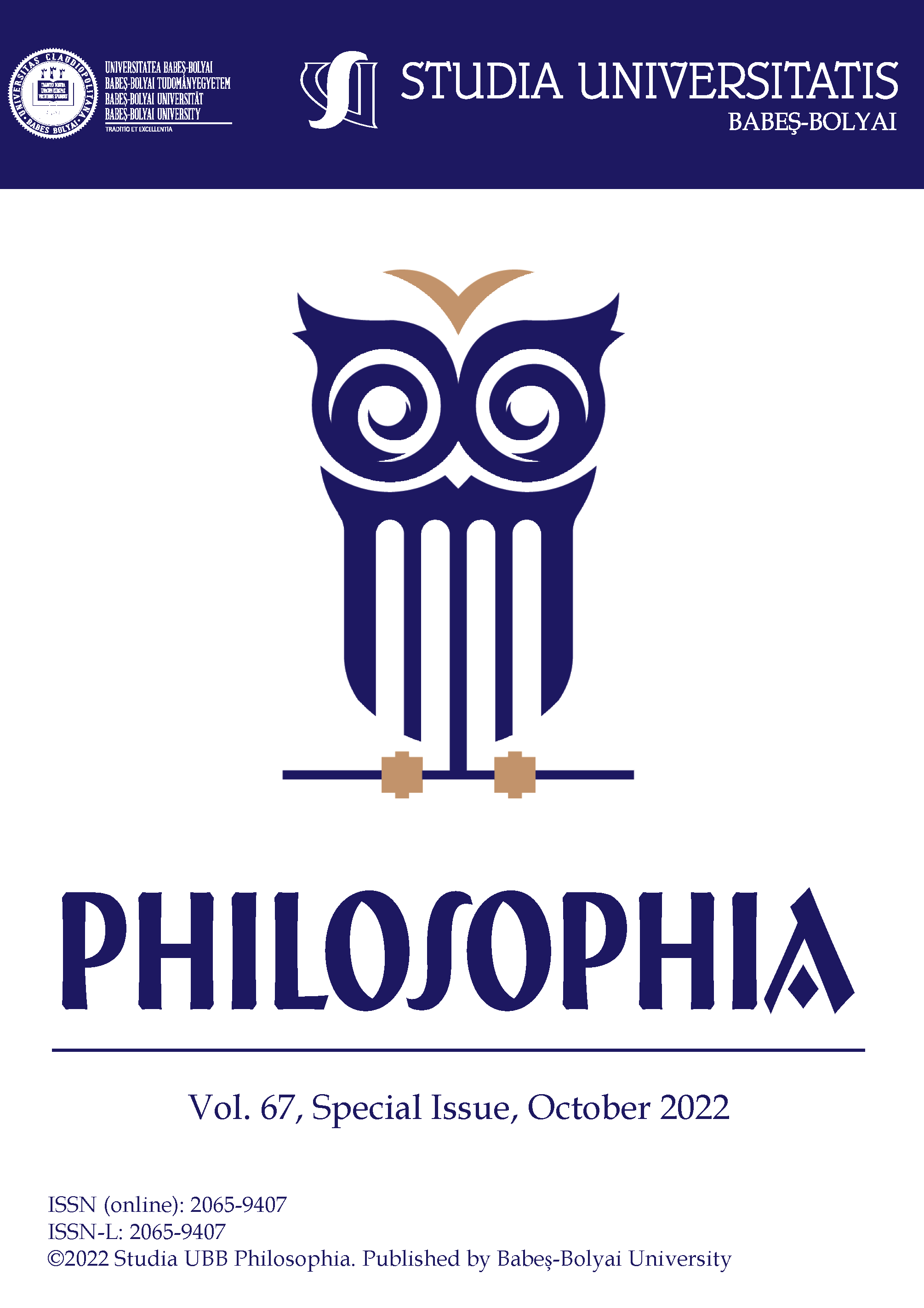BETWEEN THE LIGHTNESS OF BEING AND THE WEIGHT OF BECOMING
DOI:
https://doi.org/10.24193/subbphil.2022.sp.iss.02Keywords:
eternal recurrence, lightness, weight, freedom, being, becomingAbstract
One of the few direct solutions that Nietzsche gives for the overcoming of nihilism is the facing of the thought of eternal recurrence. Being the heaviest of all thoughts, it may seem that through Heidegger’s filter it will become a sort of metaphysical concept, but his analysis may at least help us see it as an axis around which thought can pivot, at least for a moment. Kundera sees the contradiction between lightness and weight as the most problematic of all, as it is difficult to see the burden as something positive when emancipation seems to always be an attempt to achieve total freedom, a search for lightness. We argue that the heavy thought makes us confront fatalism and affirm freedom, while lightness makes freedom by becoming impossible. The eternal recurrence is the idea that offers motivation to intervene in the chain of determinations and to influence them decisively.
References
Camus, Albert, The Myth of Sisyphus, translated by Justin O’Brien, Penguin Books, Hannondsworth, 1979
Camus, Albert, The Rebel. An Essay on Man in Revolt, translated by Anthony Bower, Vintage Books, New York, 1991
Curd, Patricia, “Presocratic Philosophy”, The Stanford Encyclopedia of Philosophy (Fall 2020 Edition), Edward N. Zalta (ed.), <https://plato.stanford.edu/archives/fall2020/entries/presocratics/>.
Heidegger, Martin, Nietzsche, Volume II: The Eternal Recurrence of the Same, Translated from the German by David Farrell Krell, Harper & Row, New York, 1984
Kundera Milan, The Unbearable Lightness of Being, translated by Michael Henry Heim, Harper & Row, New York, 1984
Minsaas, Kirsti, Ayn Rand’s Recasting of Ancient Myths in Atlas Shrugged, in Ayn Rand’s Atlas Shrugged: A Philosophical and Literary Companion. Edited by Edward W. Younkins, Ashgate Publishing Limited, Hampshire, 2007
Nietzsche, Friedrich, Beyond Good and Evil: prelude to a philosophy of the future, translated by Walter Kaufmann. Vintage Books, New York, 1966
Nietzsche, Friedrich, Ecce Homo. How One Becomes What One Is & The Antichrist. A Curse on Christianity, Translated by Thomas Wayne, Algora Publishing, New York, 2004,
Nietzsche, Friedrich, The Gay Science, translated by Walter Kaufmann, Vintage Books, New York, 1974
Nietzsche, Friedrich, The Will to Power, translated by Walter Kaufmann, Vintage Books, New York, 1968, p. 536
Otto, Walter F., Dionysus: Myth and Cult, Translated by Robert B. Palmer, Indiana University Press, Bloomington, 1965
Rand, Ayn, Atlas Shrugged, Signet, New York, 1957
Rand, Ayn, For the New Intellectual, Penguin Books, New York, 1961
Sartre, Jean-Paul, Being and Nothingness, translated by Hazel E. Barnes, Washington Square Press, New York, 1978
Sartre, Jean-Paul, Existentialism is a Humanism, translated by Carol Macomber, Yale University Press, New Haven & London, 2007.
Downloads
Published
How to Cite
Issue
Section
License
Copyright (c) 2022 Studia Universitatis Babeș-Bolyai Philosophia

This work is licensed under a Creative Commons Attribution-NonCommercial-NoDerivatives 4.0 International License.





